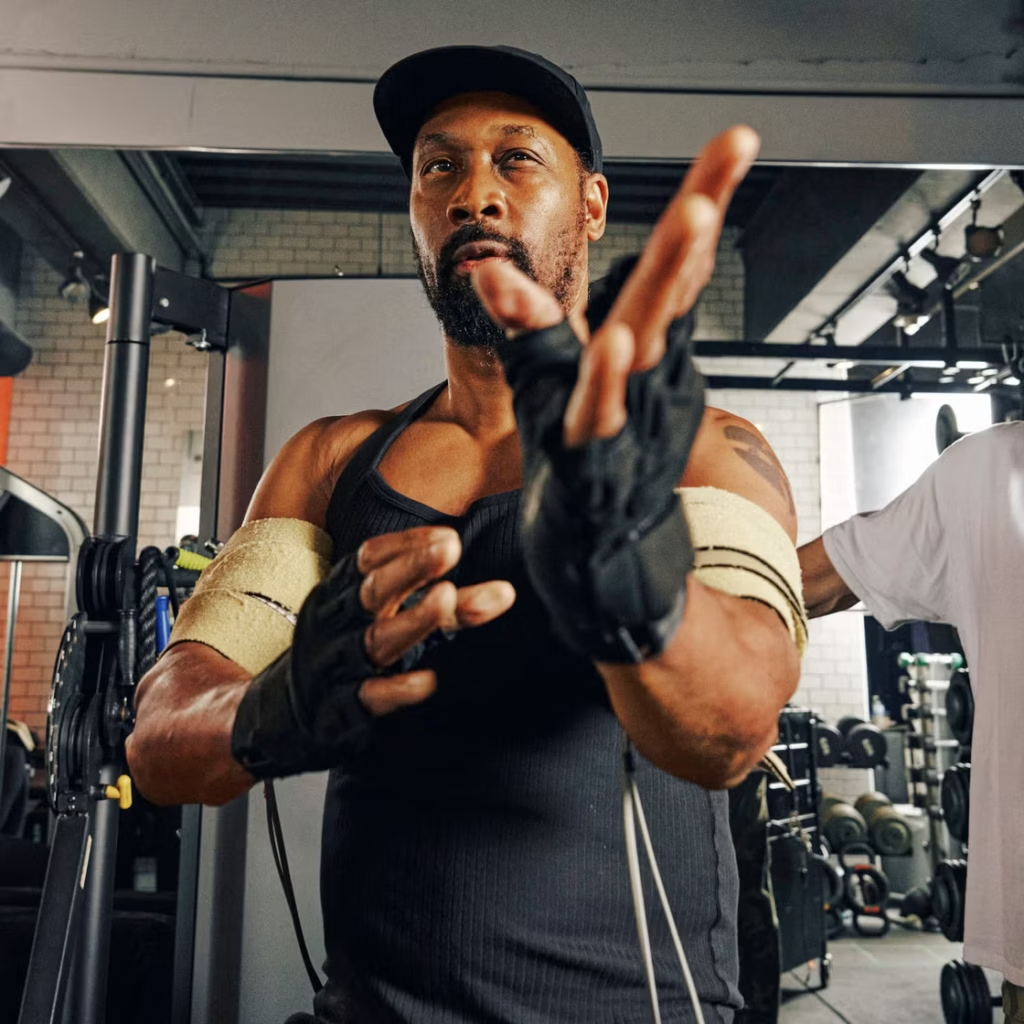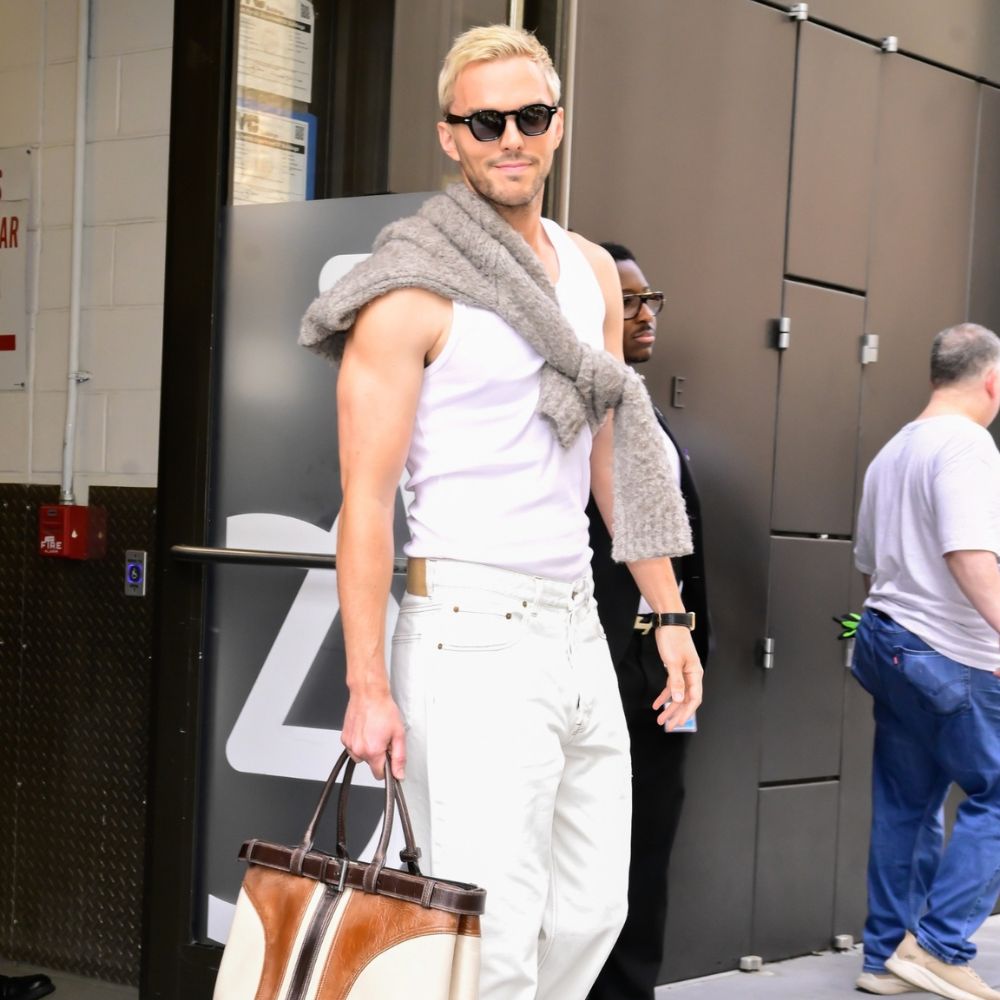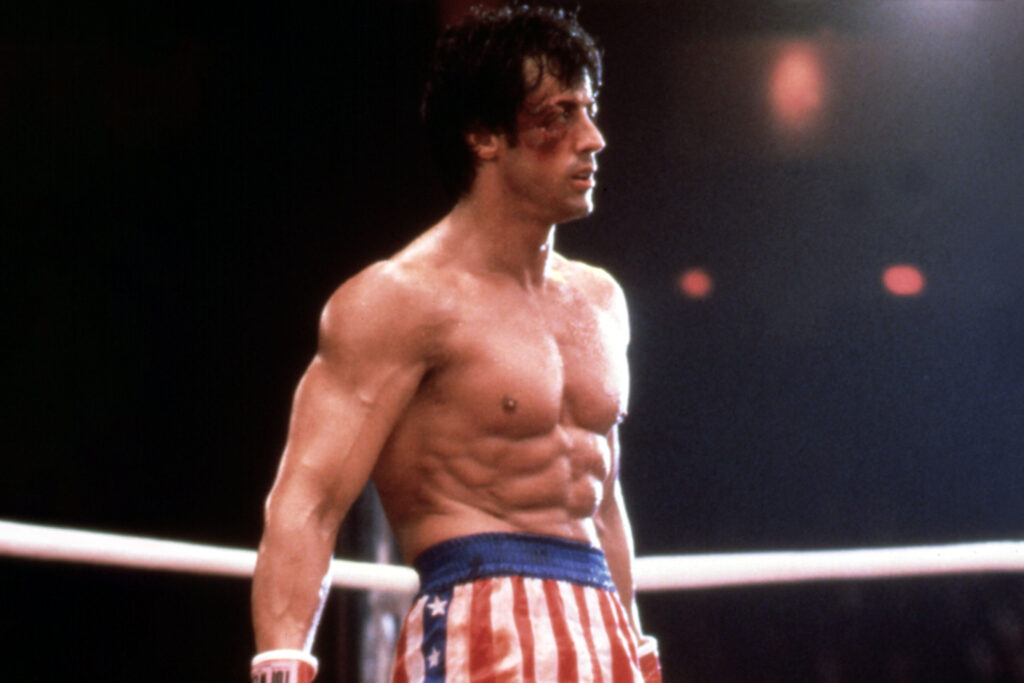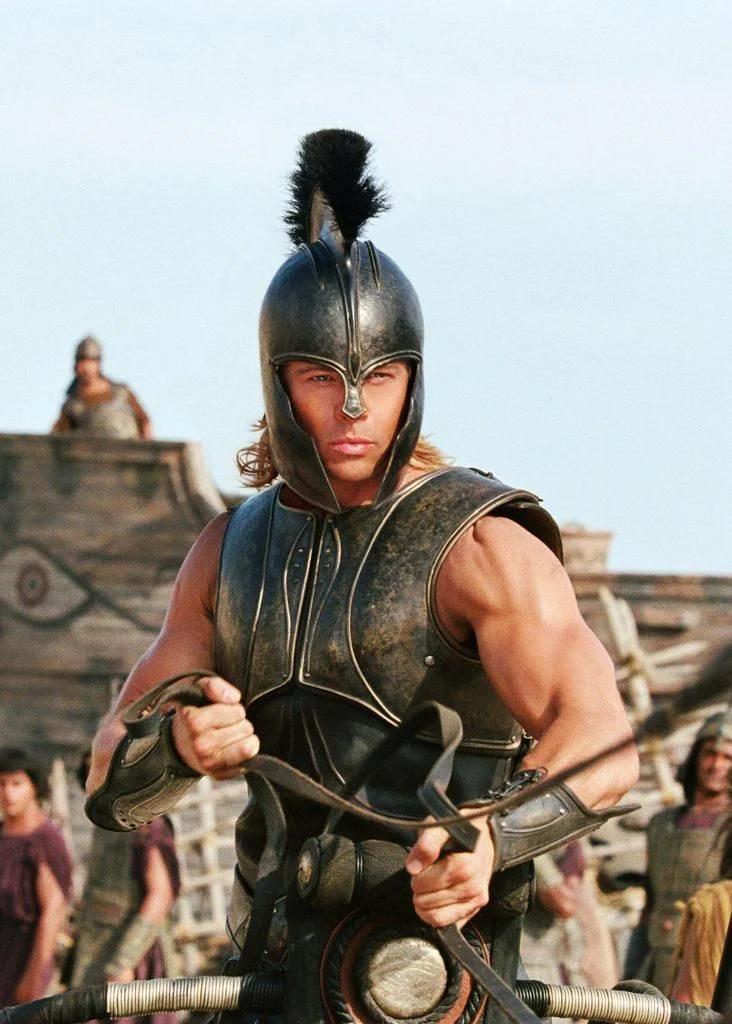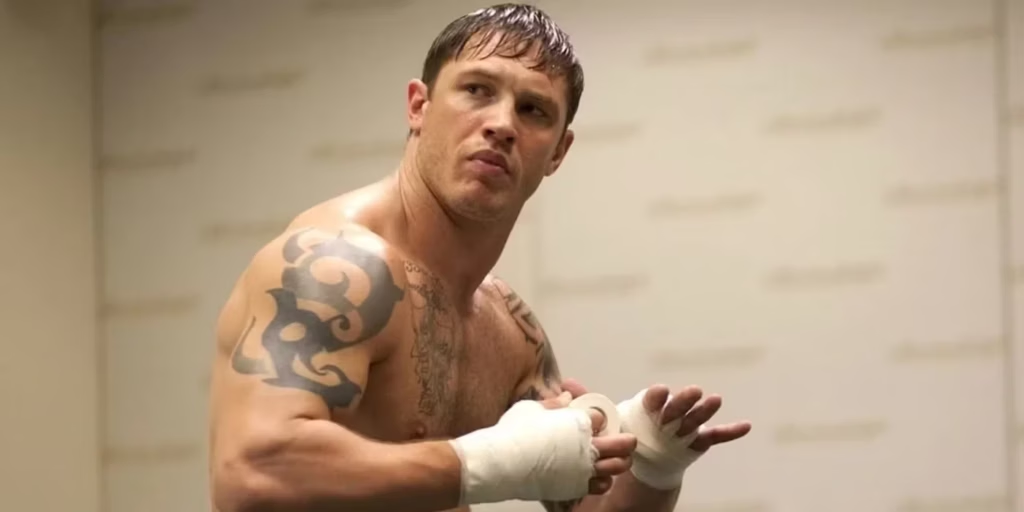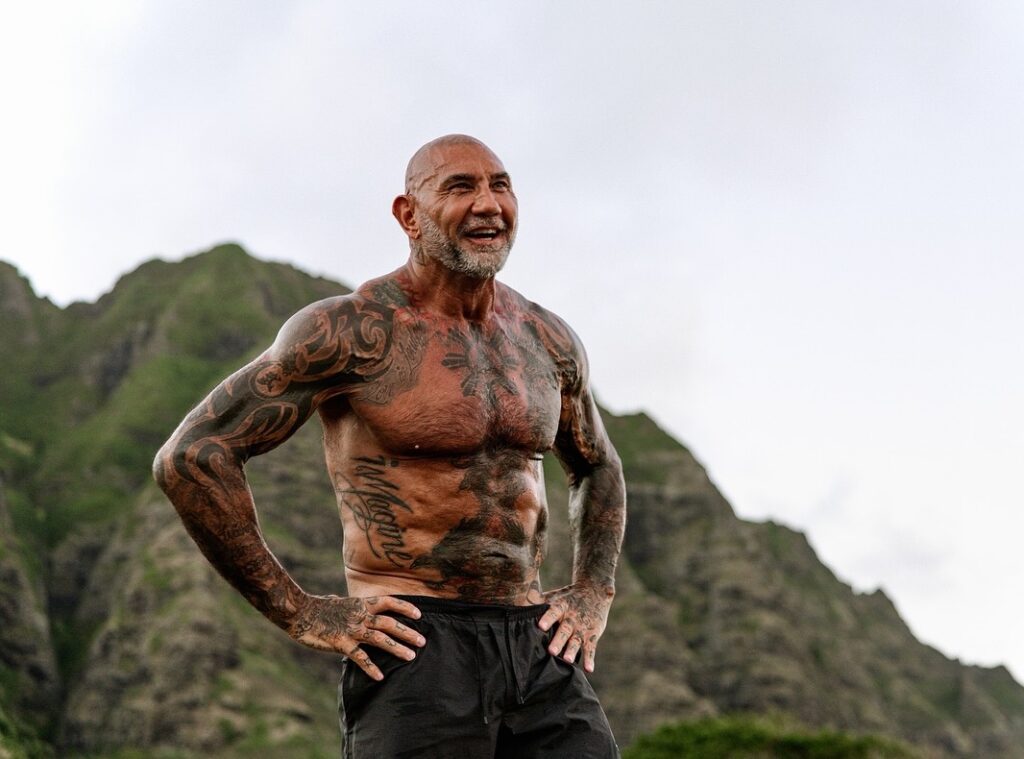Full feature will be appearing in our October Issue, on newsstands September 6.
Photography // Melinda Cartmer & Jeremy Greive
Stylist // Arrnott Olssen
Scout, Marlie-Mae, Elle and Fox all wear Seed
James, Matty, Tim and Kurt all wear French Connection
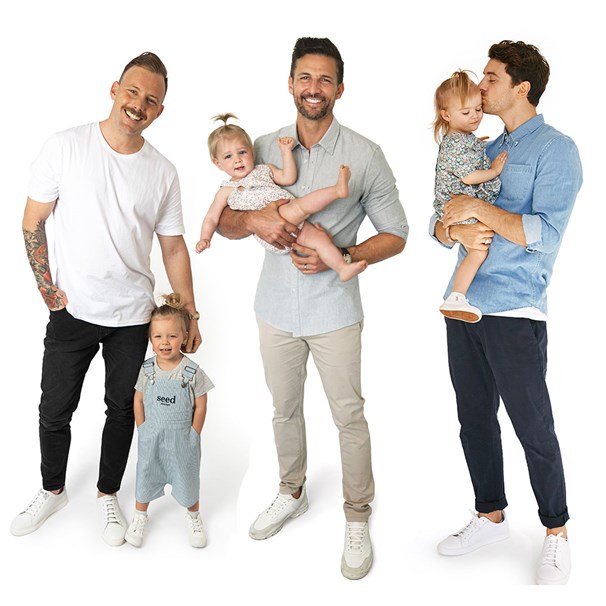
Welcome To The Hood: How Fatherhood Has Changed 4 Famous Dads
Fatherhood is evolving before our eyes. From pure breadwinner to hands-on caregiver, fathers today have the capacity to shape their children’s future like never before.
“One of the greatest things about parenting these days is that dads are demanding to be involved,” says Sharlene Vlahos, Director of Education and Business Development at parenting service Karitane. “It’s a generational shift that’s happened really quickly.”
The impact of this change will be felt in the coming years. Children who grow up with strong father figures are not only more likely to be confident and emotionally well-adjusted, says Vlahos, they also have a greater chance of building resilience. That’s because dads bring unique capabilities to child raising – a preference for physical play and a heavy reliance on humour among the most important – that can help a child forge self-esteem and deal with setbacks. “Fathers are great at doing that physical, rough and tumble style of play and children tend to be more resilient because dads do more joking around,” says Vlahos. “So, kids learn to deal with that. They build those skills really early on in the home and then that translates to school and other environments.” That’s right, dad jokes have a purpose.
A dad’s influence starts from the moment you leave the hospital, says Vlahos, with the formative years critical to brain development. “Dads can actually alter the way their child’s brain is wired and how their child will go and build relationships,” she says, citing research that shows 90 per cent of a child’s neural connections are formed before the age of five. “So, you want to get all of those positive messages and affirmations in because that’s the basis for them to then go and form relationships.”
Of course, parenting is no picnic and can often feel like a rolling series of challenges to be navigated. One in 10 dads will suffer from a perinatal mood disorder or postnatal depression. Many of these issues stem from the shift in identity fatherhood brings, Vlahos says. Some dads, she says, may also put undue pressure on themselves. “One of the things we always say to parents is don’t try and be a perfect parent,” say Vlahos. “Your child doesn’t need you to be perfect, but if you get it right 30 per cent of the time your kids will do okay, which is reassuring. The best thing parents can do, particularly dads, is being that safe, secure and reliable figure. That actually makes the child more confident to go and try new things. And if it doesn’t work out, it doesn’t work out. But they know dad has got their back.”
Whether you’re a new or soon-to-be dad or just a bloke who see kids somewhere in your future, there’s certainly plenty to learn. In that sense, there’s no better teacher than other dads. We asked four well-known fathers to reveal what raising a child means to them.

Marlie-Mae and Matty J
For Former Bachelor Australia star, Matty J, 34, the arrival of his daughters Marlie-Mae, 2, and Lola, 6 months, has seen him embrace his sensitive side
“I still remember that first night with Lola. She didn’t sleep at all. Laura, my partner, and I, spent most of that night awake, kind of handballing Lola back and forth, trying to settle her. And that’s a pretty good taste of what the rest of your life is going to be like. All of a sudden, your priority is somebody else.
I think I’ve always been a pretty sensitive guy, but since becoming a dad, I’m so much more in touch with my emotions. An ad on TV can be enough to make me well up. Recently I saw a little boy on a scooter who looked a little bit lost. And straight away I went into dad mode, where I was like, ‘Where’s his parents? Is this kid okay?’ And his dad was like 20 metres down the pavement. If ever I see a child unhappy or unwell, it hits me so hard.
Right now with Marlie, we’re actually starting to talk. I don’t know if she understands the words she’s saying but I take her to day care, and during that walk, she’ll sometimes just randomly look at me and say, ‘Daddy, I love you’. Such very simple words, but the impact they have is so huge.
Before lockdown we took a holiday to Byron and they had this great pool at the resort. Marlie was having the time of her life. And it’s funny, seeing your kid smile and be happy, there’s nothing more fulfilling than that. Now I understand why my mum used to say, ‘As long as you guys are happy, I’m happy’.
There’s a lot about parenting that’s really difficult. When you’re up two or three times in the night, it’s four in the morning and you’re exhausted and you’re trying to make a bottle and feed it to them to get them back to sleep, that is bloody hard work.
But it’s the overall juggle that’s more difficult. If your kids are happy, then you’ve got to make sure you don’t neglect your social life. And if that’s good, then you’ve got to make sure that your partner is a priority as well. And if those things are good, then the house is probably a shambles. There’s always going to be something that’s being neglected.”
I think for the most part, guys are pretty lucky when it comes to fatherhood. So, I think it’s really important to support your partner as much as possible. And mostly, that means just being present. I mean, it can be as simple as just asking if they’re okay and telling them they’re doing a good job. It sounds so basic, but the knock-on effect is huge for your partner.”
Melinda Cartmer

Fox and Kurt Tilse
With the arrival of son Fox, 2, creative agency director Kurt Tilse, 31, found that while it can take a while to find your feet as a father, pretty soon nothing else matters
“When Fox was born, I thought there was going to be this overwhelming sense of love. But it was probably about eight months in before I started actually being able to really interact with him. That’s when I really came into the picture in his life. For the mum, they have that connection from the get-go because she feels the kicks and all of that in the womb. But for me, I just felt it took a little bit longer for that really deep, deep love to kick in. But once that connection comes, then it’s so close. And now we’re best mates. It’s exactly how I envisioned fatherhood being.
I love being able to play with him and teach him new skills. He loves jumping on the skateboard with me or we have these 1kg weights and he comes in and tries to pick them up and do biceps curls. He’s real proud of himself.
I enjoy moulding him, instilling the values that you have. Seeing and hearing him saying, ‘thank you’ to people or ‘sorry’. It just makes me so proud.
Looking back, that first year is tough. You have to adjust to not being able to do what you want to do all the time. It was really difficult for the both of us because it’s not as simple as, ‘Oh, we can just walk up the road and grab a coffee’ anymore. We walk up the road with a pram and a bag full of different clothes and all sorts of things to make sure he survives that five-minute trip.
It changes everything, even training. I used to be able to go for a surf in the morning and then train in the afternoon. Now you get one of those in a day.
We’re all so driven these days and we all want to be successful. But I think, it’s so easy to get caught up in that and forget about the simple things. I think being really present with your child is more important than anything because at the end of the day, success can just disappear. And it doesn’t really matter all that much, anyway. I think it’s important to embrace what it is to be a dad and be present with your children and just enjoy it, because it’s a really special thing. It’s probably your main purpose in life.”

Elle and Tim Robards
Former MH cover guy and star of The Bachelor Australia and Neighbours, Tim Robards, 38, made a career sacrifice that along with the onset of lockdown has had a silver lining: more time with his daughter, Elle, 10 months
“Leaving Neighbours was a tough decision but you’ve got to make those types of choices for your family. I really had to put myself, my wife and my family first. I guess that’s part of how you change as a man when kids come along.
Having a child while being in and out of lockdown has been a real blessing. It really shows you what’s important. I look back and think, ‘I’m so lucky that I’ve actually been forced to be around in these times’ and be so hands-on. It’s made me think about my dad, who was always getting up and leaving for work by 7am and getting back at 7pm. It just shows how much mum had to do.
I’d heard mixed things about fatherhood but I just felt from day one, because I’ve been quite present, that it’s been the best thing in the world. We’ve been very lucky with a healthy child and I think it’s a real mix of nature versus nurture. Consistency is a big thing, helping them sleep and to self-soothe. It’s definitely hard at times but it’s not hard work, because it’s out of love.
I’m probably raising her like a little boy at the moment and there’s definitely differences in the way that my wife and I play with her. Sometimes I feel like if I had a boy, I’d be scared that I might put too much pressure on them, whereas it’s a different thing with a girl.
I think Anna and I have worked really well together. It really comes down to great communication between you and your partner, trying to be on the same page and, if you’re not, having a conversation about it. If you don’t you can get frustrated, you get tired, you get emotional. So, I think being there to support each other has made things easier.
The toughest thing for me is when your child gets her first cold or falls over and whacks her head. They’re the times where you feel helpless. Right now, she just wants to explore the world, which is good, but it means it takes so much energy to make sure she’s safe in doing that. She literally just climbed a full flight of stairs.
If you’re about to become a dad I think you need to do your research, read the books and work out what makes sense to you but then use your intuition. You can’t go, ‘Right, I’m going to follow this and it’s going to work’, like kids are a cookie-cutter thing. There’s so much with children that if you worry and think ‘What if?’, you never actually enjoy the process. A lot of people get anxious about doing everything right. I think, trust your gut. You don’t have to do everything perfectly.”

Scout and James Stewart
For Home and Away star James Stewart, 45, daughter, Scout, 9, has made him a humbler, happier man
“Fatherhood changed my priorities, my ideals, all of my ideas, it just changed everything. But I wanted to change. In this profession, there are healthy egos. You’ve got to have a little bit of ego to make your way. And then all of a sudden, you’ve got another life that’s as big as your forearm looking up at you and you just kind of go, ‘Hold up, now I’m thinking about more than just me’. I really like that part. When Scout came along, I just couldn’t stop thinking about her. I think every man needs that kind of lesson.
The fact that she was so small and vulnerable made me so conscious of my responsibility. I would fall asleep at night with her crib in my room and wake up the next morning and you get that big lungful of responsibility and that big feeling of, “Fuck me, am I going to measure up to this?’ And then you turn to yourself and you go, ‘I have to’.
I come from a single-mum background. Raising Scout has made me appreciate a woman’s perspective. How is she going to get around in the world? If I tell her she can be prime minister, do I actually believe that? Being a single father for some time until my wife, Sarah, came into the picture, I had to show this perfect little human, with the sensibilities and softness of a girl, that she can do karate as well as dancing. She can put on makeup or put on footy boots.
The hardest part of parenting is consoling her when she’s hurt or she’s crying. My hand was the hand that released the bike seat the first time she got going by herself and saw her little panicked breath of excitement. But then I was there when she fell off the first time and her face . . . man. I was there the other day when someone called her ‘Too Tall’. She’s playing mixed soccer and some of the smaller boys were saying, ‘Kick it here, Too Tall’. Just to have her come home and say, ‘Dad, I don’t know what this means’. And then she cries and you’ve got do the sticks-and-stones quote, you do all the cliches and you console her. Of course, I wanted to go out and wring those kids’ necks, but two wrongs don’t make a right. That whole lesson has been difficult for me.
One thing I’d advise guys going into this for the first time is that your child will teach you, too. They’ll tell you when the nappy needs changing. They’ll let you know when it’s not time to look at their homework if they’re not happy with it yet. In my life, Sarah was the one who made me really realise that. ‘Step back, Jim. Let Scout teach you’. It was a massive, massive lesson.
Ultimately, you’ve just got to do whatever it takes. My daughter is all my reasons.”
Jeremy Greive








